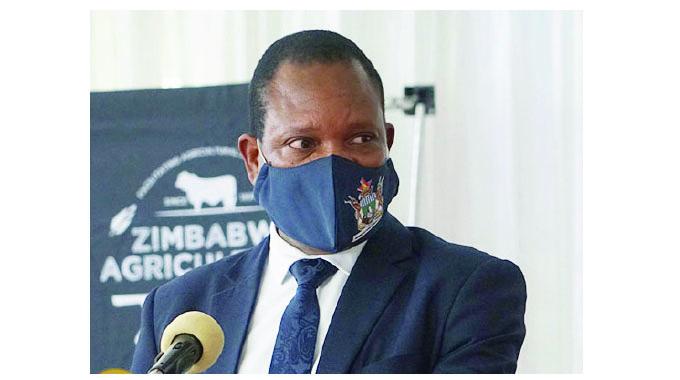
Patrick Chitumba, Midlands Bureau Chief
THE Midlands province had, by Monday, surpassed the 7 000ha target for winter wheat cropping this year amid indications that more farmers were eager to join ahead of today’s deadline.
Most farmers have shown keen interest in producing the crop after getting the necessary support from the Government.
The province, which was given a target of 7 000ha by the Government has since achieved the task, which is double last year’s winter wheat crop hectarage of 3 500ha, which fell short of the Government’s requirement of 4 500ha.
The zeal by farmers to venture into the cash crop comes against the backdrop of increased Government support towards the agriculture revival strategy.
Agriculture is a key economic pillar that is expected to contribute more towards realisation of an upper middle-income economy Vision 2030.
As farmers race to meet targets across the country, the Government has put all hands-on deck, aiming to harvest record volumes in order to eliminate imports.
Lands, Agriculture, Fisheries, Water, Climate and Rural Resettlement Minister, Dr Anxious Masuka, who was on an assessment of the winter wheat progress in the province on Monday said he was impressed by the progress made in the region despite the hurdles.
“Generally, the Government is impressed by the progress made in the Midlands province in terms of winter wheat production. Yes, there were some challenges such as the seed suppliers being overwhelmed by the demand for wheat production,” said the minister.
“But this should work as a wakeup call and we believe we can plan from now onwards.
“On our part we will continue working towards the mechanisation process. We believe if we transform this sector, we can achieve greatness in this country, Vision 2030 is very achievable and it takes commitment from everyone to make it possible,” said Dr Masuka.
Midlands Provincial Crop and Livestock officer, Mrs Medlinah Magwenzi, told Dr Masuka during the tour in Shurugwi that the province had a target of putting 7 000ha under winter wheat.
She said to date, they had achieved the target amid more interest from more farmers to take part in winter wheat production.
“As a province we are set to surpass the set target of winter wheat with most farmers having shown keen interest in producing the crop after getting the necessary support from the Government,” she said. “The province, which was given a target of 7 000ha by the Government has since put 7 000ha under the crop amid indications that more farmers are coming on board ahead of the June 10 deadline.
“We have never had a season like this before. The Government has made sure that every farmer is contracted.”
Mrs Magwenzi said despite reaching the target, they still had wheat seed at the GMB depots awaiting to be collected by more farmers.
“We are saying let’s go and get these inputs. This is the first time these inputs have been availed well on time. We want to thank the Government for making our dream come true as a province,” she said.
Provincial head in charge of irrigation, Engineer Shingirirai Zano, told the minister that irrigation schemes across the province have been capacitated to play their part in increasing land under winter wheat. He said if all the irrigation schemes come to the party, the province’s wheat production will reach new heights.
“We have been working with irrigation schemes across the province, rehabilitating and reviving others so that they make most of the available water following the good rains we received this year,” said Eng Zano.
“So, everything is in place and engineers are there to assist if need be so that the crop has sufficient water.”
Zimbabwe needs about 360 000 tonnes of wheat annually but the country is projected to produce 340 000 tonnes, which will cut import reliance.
Resource mobilisation for this winter wheat season started in earnest way back with the Government setting a target of 85 000ha of land to be put under the cereal. Production of the crop is being supported from three fronts this time around with 60 000ha being produced through a Government guaranteed CBZ Agro Yield programme, 15 000 ha by private contractors and 10 000ha through the Presidential Winter Wheat Scheme. In 1990, the country recorded its highest wheat harvest with 325 000 tonnes of the cereal being realised.
